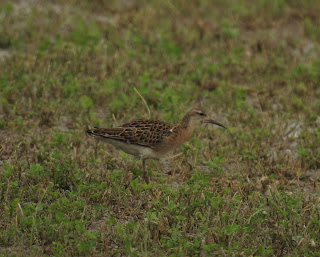WE SHOULD BE ABLE TO ROAM MORE
(From the Guardian)
People across England are right to trespass to stand up for their right to roam, Caroline Lucas has said.
The Green MP will table a bill later in October to allow the public to access woodlands and the green belt in the same way they can currently walk on the coast path.
Currently, the Countryside and Rights of Way (CRoW) Act 2000 gives a legal right of public access to about 8% of England, including mountains, moorland, heaths, some downland and commons, alongside the more recently created England coast path.
Campaigners have asked for this to be extended to cover rivers, woods and green belt land. Ninety-seven per cent of rivers are currently off-limits to the public, and tens of thousands of acres of woodland have benefited from public subsidy, yet remain publicly inaccessible.
Though her campaign sounds radical, Lucas says it is not in reality such a big ask. Talking to the Guardian shortly before launching the bill, Lucas said: “I think if the measures in the bill were to go through, instead of having access to only 8% of English land, we’d be coming up to somewhere near around 30%. So it’s a very modest ask.”
She points out that the bill has important ramifications for inequality. The majority of people who cannot access nature nearby are people in low-income areas who don’t have a car, which is necessary to get to most nature reserves. Those areas also tend to have fewer trees and smaller gardens.
Opening up areas around cities would allow more people to easily visit nature, which has well-established physical and mental health benefits, and for decades now advisers have been pleading with the government to prioritise access to green space in order to improve lives.
But Conservative ministers say that while this may sound like an attractive idea, they are concerned about the public causing disruption to rural businesses and littering. Lucas says the argument around the so-called irresponsible public is a “distraction”.
“I think it’s a very easy way of trying to close down the conversation. It’s not your wild swimmers who are polluting the rivers and it’s not your people who are exercising the right to roam that are leaving massive decaying bits of equipment, you know, hidden away in woodlands and so forth.”
Lucas recently met Richard Benyon, the Tory peer in charge of access to nature (and also a significant landowner himself).
“We had a long conversation about how we do more to allay understandable concerns about litter, dogs, all of the arguments that always come up when you talk about increasing access to nature. And it does seem ironic to me that the government has actually done quite a bit of work in terms of the countryside code and yet hasn’t really bothered to publicise it.”
In Scotland, where there is a right to roam, she pointed out that there had been a lot of education about responsible access to the countryside, and the system seemed to work pretty well.
The government earlier this year quashed a review into the right to roam in England’s countryside, amid anger from campaigners that the law of trespass stops people from walking freely around the country.
Over the last few months, mass trespasses have taken place across the country on private estates by campaigners asking for a right to roam. They have strict rules about leaving the areas in a better state than they found them, for example by picking up litter, and sticking to forest tracks and paths so as not to disturb wildlife. The MP agrees with the trespasses – and said she would like to go on them herself.
“I do agree with them,” she said. “I think they have been incredibly responsibly done. I was really sorry not to be able to make the one locally last week. The idea that you don’t leave a trace but we actually have a positive impact, so if you do see litter pick it up, and take nothing home except memories and photographs.
“I think that it’s filling a part of this vacuum that I was referring to in terms of the lack of information and education coming from anywhere else. So I think that it makes a really important political point. I think it gives people the confidence to feel that yes, we have a right to be able to access nature.”





